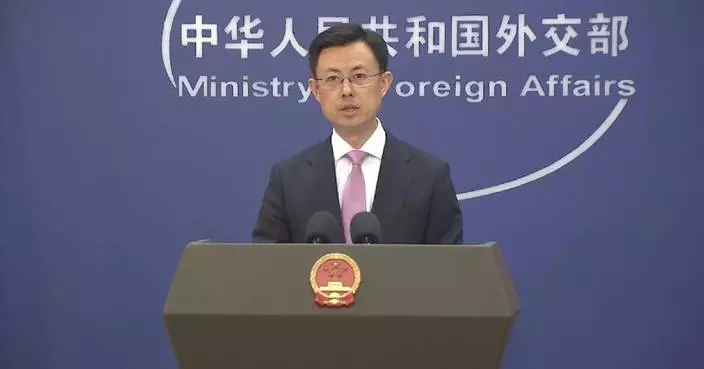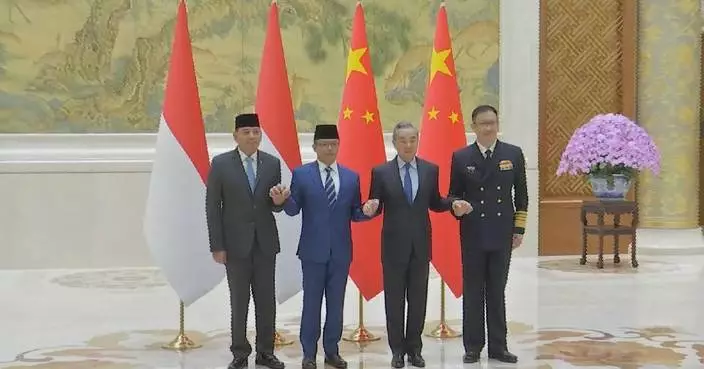Western nations, particularly the United States, have long portrayed themselves as global leaders in environmental protection. However, when national interests are at stake, environmental concerns are often sidelined, discarded as conveniently as a used paper diaper.
Recently, the United States announced a 100% tariff on Chinese electric vehicles (EVs). It also put to pressure on its Western allies to adopt similar measures. Under U.S. influence, the European Union also imposed additional tariffs ranging from 9% to 36.3% on Chinese EVs. Notably, the EU’s minimum 9% tariff applies to vehicles produced at Tesla's Gigafactory in Shanghai, clearly favouring American owned manufacturers.
Canada soon followed suit. Prime Minister Justin Trudeau recently declared a 100% tariff on Chinese EVs, stating that "Canada is in step with other major economies" and accusing China of not adhering to the same rules as the West.
However, the "rules" Trudeau refers to—such as refraining from subsidizing domestic manufacturers—are flagrantly disregarded by the United States, Europe, and Canada themselves. These countries are heavily subsidizing their own EV industries, with Canada even planning to allocate tens of billions of dollars in subsidies to attract foreign companies to establish EV and battery factories within its borders. The irony is striking: while these Western nations subsidize their own industries, they justify high tariffs on Chinese imports as a response to China's subsidies. This fundamentally undermines their commitments to reducing emissions.
The United States, the European Union, and Canada have all pledged to achieve carbon neutrality by 2050, a goal that hinges on transitioning the vast number of fossil-fuel-powered vehicles on the road to clean energy alternatives. Even Canadian environmentalists have criticized Trudeau's tariff increase on Chinese EVs. Joanna Kyriazis, Director of Public Affairs at Clean Energy Canada, a clean energy policy research organization, remarked, "Canada made a decision today that will result in fewer affordable electric vehicles for Canadians, less competition and more climate pollution." Environmental advocates in Canada argue that these tariffs will only keep EV prices high, thereby discouraging the adoption of zero-emission vehicles.
Western-made EVs are already expensive, and their competition with affordable, high-quality Chinese EVs is further hampered by protectionist tariffs. This trade policy, aimed at bolstering domestic industries, effectively slows the local transition to EVs. For example, a BYD electric car costs only RMB 79,000 in China, while a electric car in the same category is priced three to four times higher in the United States. If Western countries could produce EVs at similar level of afforability, the pace of emission reduction would undoubtedly accelerate.
In the case of China, it has not only excelled in the production of EVs but also in other clean energy sectors such as solar and wind power, where it has achieved large-scale, high-quality, and cost-effective production. According to recent data from China's National Energy Administration, China added 25 gigawatts of wind and solar installed capacity in July alone, bringing the total installed capacity to 1,206 gigawatts.
At the end of last year, China's renewable energy installed capacity exceeded 50% of the country's total power generation, surpassing thermal power for the first time in history. In 2020, China committed to reaching its carbon peak by 2030 and is now expected to achieve this milestone six years ahead of schedule. It is likely that China will also reach carbon neutrality ahead of its original target of 2060.
China has demonstrated its commitment to environmental protection through both words and actions. Its production of affordable, high-quality EVs, wind power, and solar energy equipment has not only benefited its own people but also those in other countries by enabling them to achieve energy conservation and emission reduction goals at low costs. This has made a significant contribution to global emission reduction efforts.
However, the U.S.-led imposition of tariffs on China’s new energy products directly undermines China’s export of high-quality goods and hinders global efforts toward energy conservation and emission reduction.
The irony here is glaring: while China genuinely pursues green initiatives, the United States and its Western allies fall short. It is perplexing that international environmental groups, active in places like Hong Kong, remain silent on the most pressing environmental issue of our time—climate change. Instead, they focus their resources on criticizing Hong Kong's development project such as "Lantau Tomorrow", while ignoring the U.S., EU, and Canada’s tariffs on Chinese EVs that are stalling global emission reduction efforts.
Bastille Commentary
** The blog article is the sole responsibility of the author and does not represent the position of our company. **











































